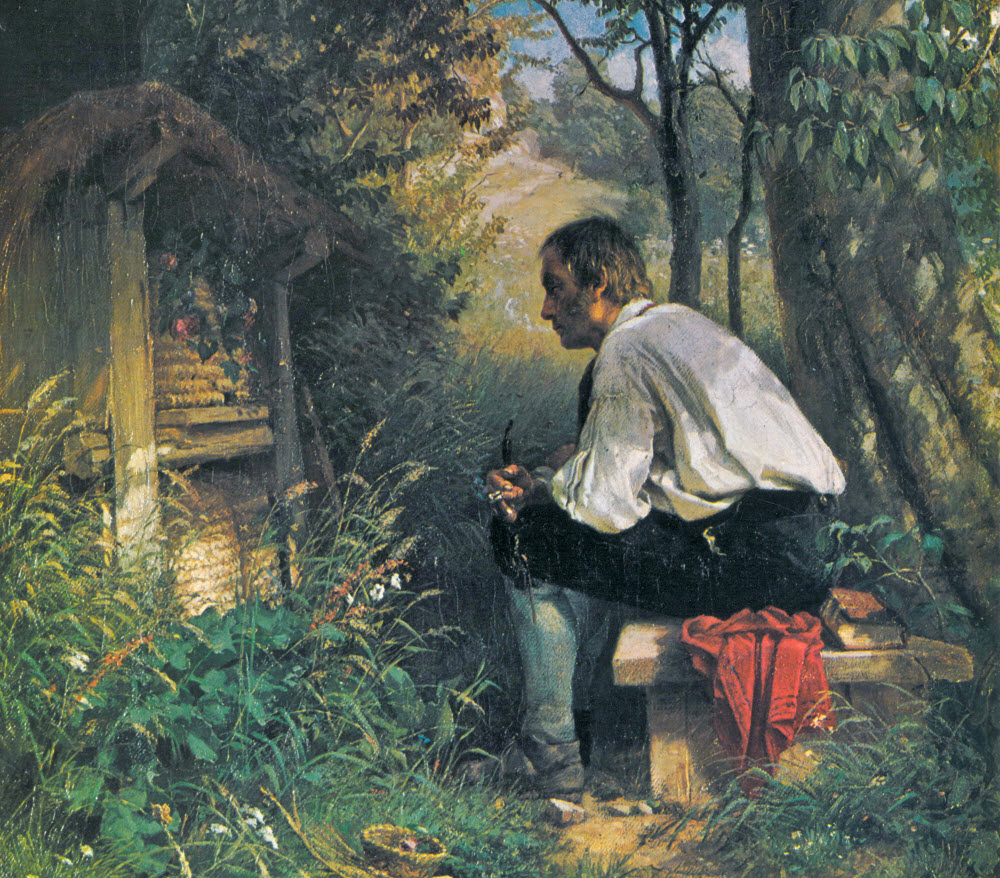
Caring for bees is one of the most rewarding things I have ever done. They are inspiring and rewarding to care for. In fact, I would go so far as to say that I find them joyful to have around.
We have all heard that the honey bee is in decline due to the use of pesticides, chemicals and the pressures of the urban sprawl. The honey bee is vital to the pollination of the worlds crops yet they are dying at an alarming rate and need your help.
As a Bee Carer you will get to observe their quirky habits, and the interconnectedness of nature. You will appreciate how weather and climate affect your bees and appreciate the change of seasons in a new way. You will find yourself chatting away to them when working in the garden too.
The rewards are many and multifaceted too.
- It is a well documented phenomenon that mental health is improved by the interactions with your bees and with nature in general.
- Your fruit and vegetables will grow better and produce more with bees in your garden
- You will start to notice and learn overtime which flowers are visited and when they are in season.
- You will learn about their complexities and understand the roles within the hive.
- If you are good at caring for your bees you may even get the reward of fresh honey and the benefit of having your own beeswax for crafting.
Ready to Get Started?
Step 1.
Healthy Bees
One of the first things you will need to know is what can go wrong with your bees. So I always recommend that you start by doing a simple bio security course online. There are many to choose from but in Australia the BOLT course is free and contains all the basic information you need to know. Managed by PlantHealth Australia the course will take you around 2 hours to complete and can be done from the comfort of home via an internet connection.
Step 2.
Hive Roles
Learning the roles of the bees and the different stages they go through will help you to understand what is happening in the hive. Bees are wonderful and intriguing creatures. They exhibit behaviours that tell us an awful lot about what they are doing and why. For centuries beekeepers have sat watching and talking with their bees, learning more about them and including them in their family.

This wonderful custom known as telling the bees is said to have originated in Europe but can also be found in America and other places around the world. Poetry and rhyme has been written about it but for me the act of chatting with the bees is more simple. With all that goes on in our lives and the world in general the simple act of sitting and talking with my bees helps me to slow down and take the time to not only watch and chat but to care for my mental health as well. Try it sometime – you will thank me.
Step 3
Hive Selection and Tools of the Trade
There are many different types of hives and each has its own advantages and disadvantages. Now I am not going to go through them all here. I will save that for another post, but it is worth pointing out that they all have a very different price point and ways of managing the bees themselves. Whether it’s a traditional Langstroth hive or something else during this phase of becoming a Bee Carer you will choose the most appropriate hive for your individual circumstances and learn how to manage bees within your context with the best tools available to you.
Step 4
Obtaining Bees
Traditionally beekeeping works with the European Honey Bee but their is a growing interest in Native Bees around the world. In Australia alone we have an estimated 2000 plus species of native bees. Not all bees are kept for the production of honey and but rather some are kept for the shear joy and pleasure of having them around. Australia’s abundant native bees are incredibly diverse in not only appearance but also habitat and behaviour. For example there are solitary bees that do not live in a hive but rather within hollowed out sticks or crevaces with such a diverse range of colours such as the Blue Banded Bee or there are native bees that form amazing nest architecture such as the resin pots hanging from small branches of shrubs of the Austrochile species. Which ever bee you choose you will no doubt become hooked over time. Obtain your bees will then be the task to hand and can vary from purchasing an established hive to wild foraging or encouraging bees to set up their own homes in your garden.
For most though it is the attraction of honey and wax that brings us to obtaining or setting up our first bee hive. In this case we must register with our state authority as a beekeeper and obtain a hive from a legitimate source. Many beekeeping clubs will assist new members with this task or point you in the right direction at the very least. One thing to be sure of is that you inspect the hive before agreeing to purchase to ensure it is not only healthy but strong enough to build a new hive in a new location.
Step 5
Ongoing Maintenance
Bee Carers are more than just beekeepers. Beekeepers are primarily about wanting to ensure they get a return on their investment of hard earned cash and time, whereas our Bee Carers are more interested in ensuring the longevity and ongoing health of bee colonies both native and european. Bee Carers understand the role the bee plays in the ongoing health of planet biodiversity. Bee Carers are aware of the difficulties faced by their bees and are happy to leave the honey for the bees – after all it is their food source.
Ongoing maintenance of your bee hive will help you to understand all these things and more. There are simple tests we must perform to ensure the health of all bees not just our own but more than that the act of caring for bees will have you reconsider the use of chemicals, pesticides, herbicides around your home. It will have you planting bee food to ensure they have enough to eat through all seasons not just in spring/summer. In fact once you have joined the Bee Carers of the world you will find yourself noticing more and more in nature and caring just that little bit more about how the environment is going. That has to be good for all of us – right.
If you are not sure which way to jump then head over to our Bee Carers page and reach out. We would love to be part of your journey into the wonderful world of Bees.
